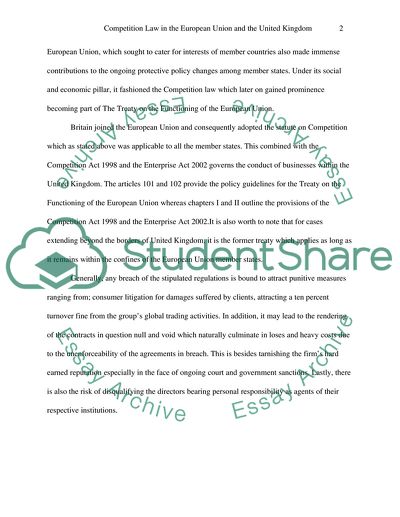Cite this document
(“Competition Law in the European Union and the United Kingdom Essay - 10”, n.d.)
Retrieved from https://studentshare.org/law/1640914-case-study
Retrieved from https://studentshare.org/law/1640914-case-study
(Competition Law in the European Union and the United Kingdom Essay - 10)
https://studentshare.org/law/1640914-case-study.
https://studentshare.org/law/1640914-case-study.
“Competition Law in the European Union and the United Kingdom Essay - 10”, n.d. https://studentshare.org/law/1640914-case-study.


